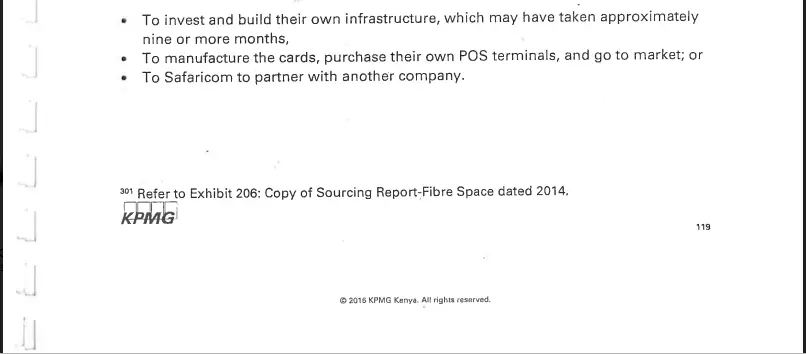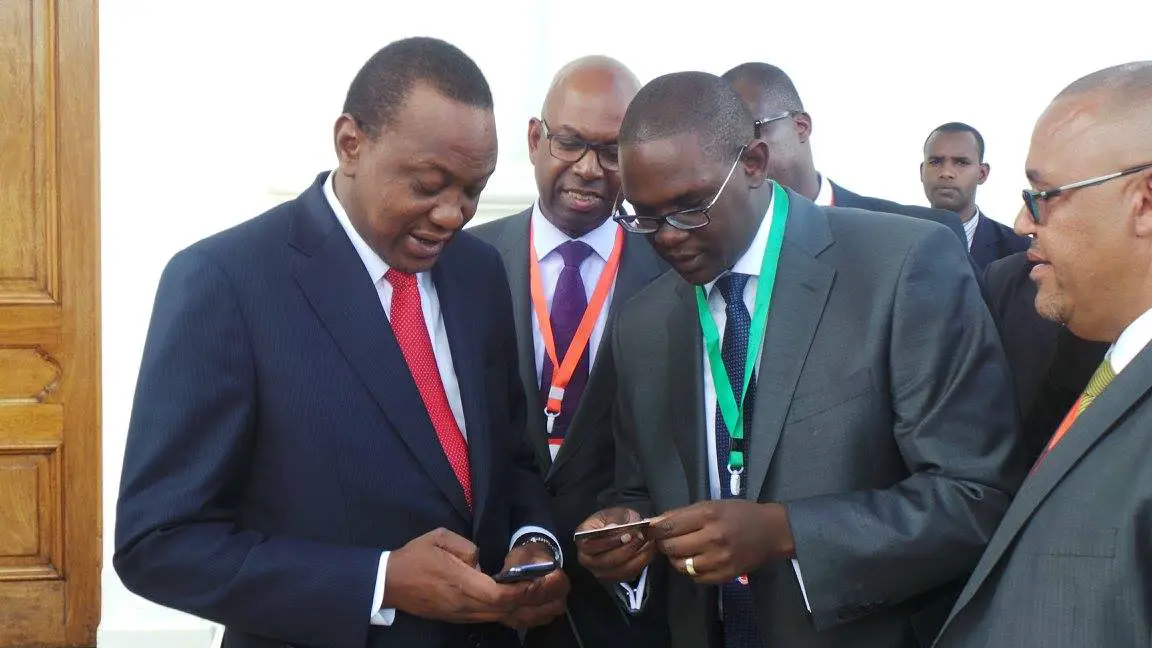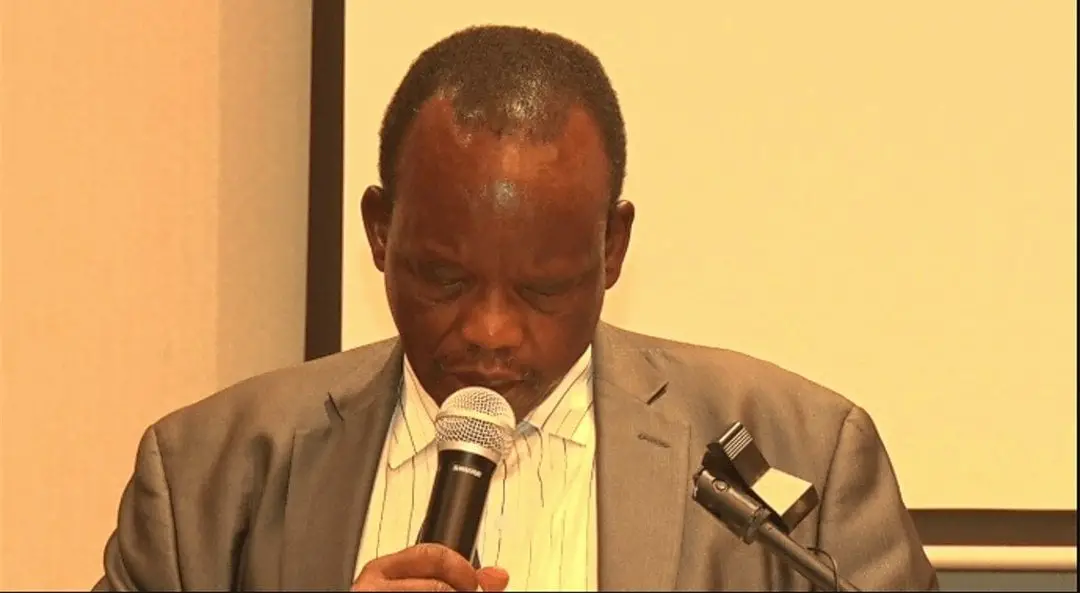Kenya is indeed a bandit state if you look at what is happening all over. For instance, activist Boniface Mwangi and Journalist Mohammed Ali are being mocked by Kenyans for showing their interest in the August Elections, because they are not criminals. In Kenya, you must be a criminal or a thief to be a successful politician.
For corruption to exist two things must be present:
1) A Government: Corruption, like a virus cannot survive outside a host. If all the laws of the land were suspended, today corruption would cease to exist. There is no such thing as corruption in a free market. Any corruption that takes place in the private sector is motivated by the desire to skirt some form of regulation. In a free market, you can’t bribe someone to buy your product. Governments are necessary evils. We need them, yes but to keep them honest, we must limit their size and scope.
2) Human greed. Greed is a universal human endeavor — It is not unique to Jubilee or Kenya or Nigeria or Safaricom. You cannot do away with greed any more than you can do away with anger or fear or lust. Human greed is not exclusive to learned or unlearned. Your average Ph.D. professor has the same propensity for greed as a form 4 leaver. No more no less.
So since both requirements for corruption (governments and human greed) are common to almost all nations, why is it we do not find corruption ravaging all countries in equal measure? Because it has to do with the size of the Governments, not the people who run them. The bigger more convoluted the structure, the more corruption you get. Corruption is like evaporation. The greater the surface area, the greater the evaporation. The more ministries you have, the bigger the budget, the more departments you have, the greater the financial evaporation.
It’s impossible to create a new law without increasing the demand for corruption. Say for example you create a law that states anyone who murders somebody goes to jail. This is a good and necessary law. But by creating it, you automatically create an opportunity for a criminal suspect to bribe their way out of trouble and you also create an opportunity for a greedy law enforcement officer to extort the innocent suspect.
Jubilee government came to power on a digital platform and in a bid to digitize everything, they banned the use of cash in public transport fare payments, with a deadline for the adoption of the system set for July 2015. However, the deadline was shifted to Dec 2015 due to poor Uptake.
Inside Safaricom, some fellas had seen an excellent opportunity to cash in from this system despite many experts warning that the Cashless Payment system was bound to fail due to many issues including a resistant market.
Caption: Safaricom LTD
The KPMG Report presents us with a behind the Scenes Shenanigans that Saw Safaricom Lose Millions aided by Insiders who sincerely wanted to defraud Safaricom Shareholders! As I do this Article, some of them are still the employees of Safaricom, to do more damage!
Safaricom had developed a transport system based on Mpesa which it tried to integrate into the transport sector but in July 2013, the government outlawed the use of mobile money and stated that transport operators had to use a Near Fied Card ( NFC ) Card for payment. It is alleged banks bribed in efforts to kick Safaricom out of this lucrative industry.
Banks ganged up into cartels and started fronting for their EMV Cards, Mastercard and Visa Cards to be exclusively used in the matatu Sector.
You see, our friends at Safaricom now got a good opportunity to rush everything in the name of ” Banks have ganged up against us ”. Such claims enable our friends at Safaricom to single- Source and bring in their preferred Shell Companies. This is probably why Safaricom’s Senior Finance Manager, a Mr. Gichuru had lamented that banks had come together as a cartel to edge Kenya’s biggest money spinner- Safaricom!
You see Safaricom is not a bank but everything had to be done to also get a share in the anticipated lucrative Matatu Industry despite many warnings from experts that it was bound to fail.
Then from nowhere, Fibre Space was single-sourced. Fibre Space with brand name ” My 1963 ” was a special purpose briefcase company formed to loot from Safaricom. But by who? As we serialize this Safaricom KPMG Jumbo, We will soon Tell you who owns this shadowy company
KPMG Auditors note that the initial contact point between Fibre Space and Safaricom was not determinable based on the documents provided for their consideration.
KPMG Auditors note that it was expected that Fibre Space would sell POs to vehicle owners. At the time of the card system, Safaricom did not have their own card system and the position at the of the KPMG Audit was as Follows as attached hereunder
During this same period, KPMG also established that Fibre Space was actually having discussions with the head of the business unit Sylvia Mulinge.
Editor’s Note: Sylvia Mulinge was recently in the news for killing a minor and trying to bribe her way out. The office of DPP, after social media pressure, wrote a letter to Director Of Criminal Investigations Ndegwa Muhoro to give him an update on Sylvia Mulinge’s matter. Muhoro is yet to give an update.
After all the contracting and other stuff, it was agreed Fibre Space was to provide card management system in addition to their card and pose vendors.
It was further agreed that Safaricom was to invest in rolling out the cards to the market as well as purchasing POS and distributing them. Fibre Space was to give Safaricom a 1% of the revenue transacted from the Matatus.
As it always is with Companies with Insider dealings, KPMG Learnt that Safaricom had already paid for the cards from Fibre Space Vendors which could be interpreted as meaning that Safaricom had pre-financed Fibre Space!
One Gichuru informed KPMG Auditors that Safaricom managed to lobby Government and launched this product early in the market ( Nov 2014 ) with a market boost from President Uhuru Kenyatta
Caption: President Uhuru Kenyatta tops up his My 1963 card. payments were made to Fibre Space for a total of USD 6.46 million leaving Safaricom wit a dead stock of unusable cards.
After this marketing stunt, Safaricom ordered 1 Million Cards and 500 POs.
But the Cashless Payment system for Matatus finally slowed then stalled at Implementation as Safaricom gave the hereunder attached excuses
What we fail to buy is the argument that Safaricom did not Anticipate all this! You see these guys formed themselves into cartels, single-sourced a briefcase company whose aim was to con Safaricom. Fibre Space was in communication with Sylvia Mulinge and their aim was to steal because they knew very well the cashless system could never work!
CAPTION: Bob Collymore and Sylvia Mulinge, while launching the Big Box units. They later malfunctioned, occasioned by reckless greed by Safaricom’s tender committee’s.
1,300 POS out of the 5000 POS that were purchased were deployed in the Matatus. The other POS are stored in the Safaricom Warehouse
200,000 of the 1 Million purchased cards were offered to the market , 27,000 were faulty and 600,000 are yet to be delivered by the manufacturer
To the shocking surprise of the auditors, accountability documents related to this contract seem to have disappeared into thin air after payments were made to Fibre Space for a total of USD 6.46 million !! leaving Safaricom with dead stock of unusable cards.
Are these guys still in the employ of Safaricom? Is Bob Collymore still its CEO and still living in Kenya. We would only assume that this can only happen in his absence, and upon discovery, wouldn’t he be spirited away from this country? N, wait! He married a local lass, probably has Kenyan citizenship to boot.





















































